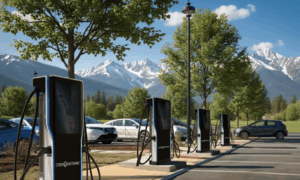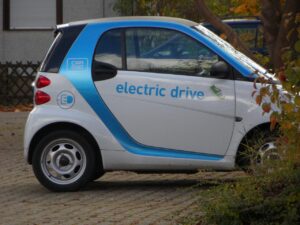
Home / EV Charging News / Powering Up Together: Electric Car Charging Solutions for Shared Housing
In the ever-expanding realm of electric vehicles (EVs), the transition to sustainable transportation extends into shared housing. This article explores the intricacies of implementing electric car charging solutions in multi-unit housing complexes like condos and apartments, analyzing both the challenges and opportunities inherent in these shared environments.
As more residents in shared housing opt for electric vehicles, the demand for accessible and convenient charging solutions is burgeoning. The shared housing landscape, with its unique characteristics, presents a canvas for collaborative efforts to establish effective and scalable electric car charging solutions.
Within shared housing environments, addressing the charging infrastructure becomes a crucial aspect of fostering sustainable transportation practices. This requires thoughtful planning and coordination to ensure that charging solutions meet the diverse needs of residents while seamlessly integrating into the shared spaces of multi-unit housing complexes.
A central challenge lies in the often limited availability of parking spaces within shared housing complexes. Installing charging stations must be approached with sensitivity to accessibility concerns and the need to accommodate the varying parking needs of residents. Striking this balance becomes key to the successful integration of electric car charging solutions in shared spaces.
Additionally, the financial landscape of shared housing introduces a need for cost-effective solutions. Balancing the energy demands of charging stations with the associated costs is paramount. Optimizing energy usage and exploring efficient yet economical charging infrastructure options are essential considerations for shared housing communities operating within budget constraints.
While challenges exist, shared housing environments present unique opportunities for collaborative solutions. Building partnerships between residents, property managers, and energy providers can pave the way for innovative and inclusive charging infrastructure. Exploring shared funding models and incentivizing EV adoption within these communities can create a win-win scenario for both residents and property management.
Advancements in charging technology play a pivotal role in addressing the challenges of implementing electric car charging solutions in shared housing. Smart charging solutions, coupled with advancements in energy storage, can enhance the efficiency of charging stations. Additionally, exploring future-ready technologies, such as wireless charging, holds promise for a streamlined and user-friendly experience within shared housing complexes.
The successful integration of electric car charging solutions in shared housing goes beyond convenience; it empowers communities to actively participate in sustainable mobility. By fostering an environment that supports EV adoption, shared housing complexes contribute to the reduction of carbon emissions and promote a culture of environmental responsibility among residents.
Community engagement and education play pivotal roles in ensuring the success of electric car charging initiatives in shared housing. Informing residents about the benefits of EVs, the ease of access to charging stations, and dispelling common myths fosters a positive and informed perspective. Workshops and outreach programs can encourage active participation and a sense of shared responsibility for the success of electric mobility within the community.
Recognizing the diversity of lifestyles within shared housing, offering flexible charging solutions becomes imperative. Implementing a mix of Level 1 and Level 2 chargers, along with a strategic placement that accommodates varied parking arrangements, ensures that residents with different charging needs can seamlessly integrate electric vehicles into their daily lives.
The successful integration of electric car charging infrastructure in shared housing also calls for collaboration with urban planners and policymakers. Advocating for policies that incentivize property developers to incorporate charging solutions in new constructions, along with retrofitting existing structures, can contribute to a more widespread and sustainable adoption of EVs in shared housing communities.
Energy providers and technology companies play a crucial role in shaping the future of electric car charging in shared housing. Collaborative efforts to explore innovative billing models, grid management solutions, and the integration of renewable energy sources into charging infrastructure can further enhance the sustainability and efficiency of EV charging in shared environments.
In conclusion, the integration of electric car charging solutions in shared housing complexes represents more than a technological upgrade; it’s a step towards leaving a sustainable legacy for future generations. As shared communities actively embrace electric mobility, they contribute not only to the reduction of their carbon footprint but also to the creation of a more environmentally conscious and forward-thinking society. With collaboration, education, and a commitment to innovation, shared housing complexes can pave the way for a shared electric future that benefits both current and future residents alike.



